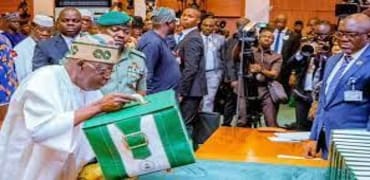Professors on Peanuts: ASUU Warns of Fresh Strike as Varsity Pay Crisis Deepens
Professors on Peanuts: ASUU Warns of Fresh Strike as Varsity Pay Crisis Deepens
Nigeria’s ivory towers are once again on the brink of paralysis. Following nationwide protests, the Academic Staff Union of Universities (ASUU) has announced that its members will reconvene in congresses to determine the union’s next steps — and a strike looms large on the horizon.
At the heart of the standoff is what ASUU describes as the Federal Government’s failure to honour commitments under the renegotiated 2009 FGN-ASUU agreement, which was concluded in 2024 and submitted earlier this year. The union says promises of better pay, funding, and improved working conditions have remained little more than ink on paper.
“Professors Earning Like Interns”
One of the flashpoints is the revelation that professors in Nigerian universities earn between N525,000 and N633,000 monthly under the Consolidated University Academic Salary Structure (CONUASS). After deductions, many take home barely N300,000. Graduate Assistants start out at about N125,000, while Senior Lecturers earn less than N500,000.
For a cadre that trains doctors, engineers, and leaders, the figures sound almost fictional. A former Vice Chancellor of the University of Lagos, Prof. Oluwatoyin Ogundipe, described the pay as “a national joke.”
“As VC, I earned N900,000. Today, as a professor, I earn N700,000. My son looked at my payslip and laughed. Some lecturers even sleep in offices because they cannot afford rent,” Ogundipe lamented.
ASUU president, Prof. Chris Piwuna, was even blunter: “Politicians are the ones getting pay raises while those who keep the country’s education system alive are neglected. Morale is dead. Quality is sinking. And Nigerians are paying the price.”
Government in Closed-Door Talks
Meanwhile, the Federal Government is scrambling to prevent another shutdown of public universities. A high-level meeting has been convened in Abuja with the Ministers of Education and Labour, along with the National Salaries, Incomes and Wages Commission, to harmonise the Yayale Ahmed draft report (2024) with the original 2009 agreement and the Nimi Briggs report.
Top sources told reporters that the government plans to design a phased financial roadmap to fit the commitments into the national budget and produce a binding framework for implementation.
But in a twist that further strained trust, ASUU was not invited to the talks. “We have no meeting with the Federal Government tomorrow. They didn’t invite us. Whatever they discuss, we will go back to our members and decide the next line of action,” Piwuna confirmed.
A Union Running Out of Patience
For ASUU, the timeline is not just about promises; it’s about survival. Lecturers complain of being unable to pay rent, provide for their families, or even sustain basic living standards.
Prof. Tunde Adeoye of the University of Lagos argued that Nigeria must immediately adjust salaries to reflect current realities. “In Kenya and Zimbabwe, academics earn better than in Nigeria. Here, professors are paid less than mid-level managers in the private sector. If nothing changes, brain drain will escalate,” he warned.
What Happens Next
The ball is now firmly in the government’s court. While N50bn was released earlier this year to settle backlog allowances, ASUU insists that’s only a token gesture. The core issue — a comprehensive salary and welfare review — remains untouched.
If congresses across campuses endorse industrial action, Nigerians may once again face another prolonged closure of public universities, a cycle that has repeated itself for decades.
For now, the chalkboards remain in use, but the threat is clear: without urgent reforms, Nigeria risks losing not just a semester, but an entire generation of scholars.
By Haruna Yakubu Haruna

















